CONSTANT CHANGE AND COMPROMISE: EXPLORING TLACUITAPA, MEXICO
 This week Prospect Journal is publishing a series of photo journals about international travel - join us as we explore a diverse set of countries by reading our “Changing Perspectives: Journalism Through an International Lens” series!By Risa FarrellContributing Writer
This week Prospect Journal is publishing a series of photo journals about international travel - join us as we explore a diverse set of countries by reading our “Changing Perspectives: Journalism Through an International Lens” series!By Risa FarrellContributing Writer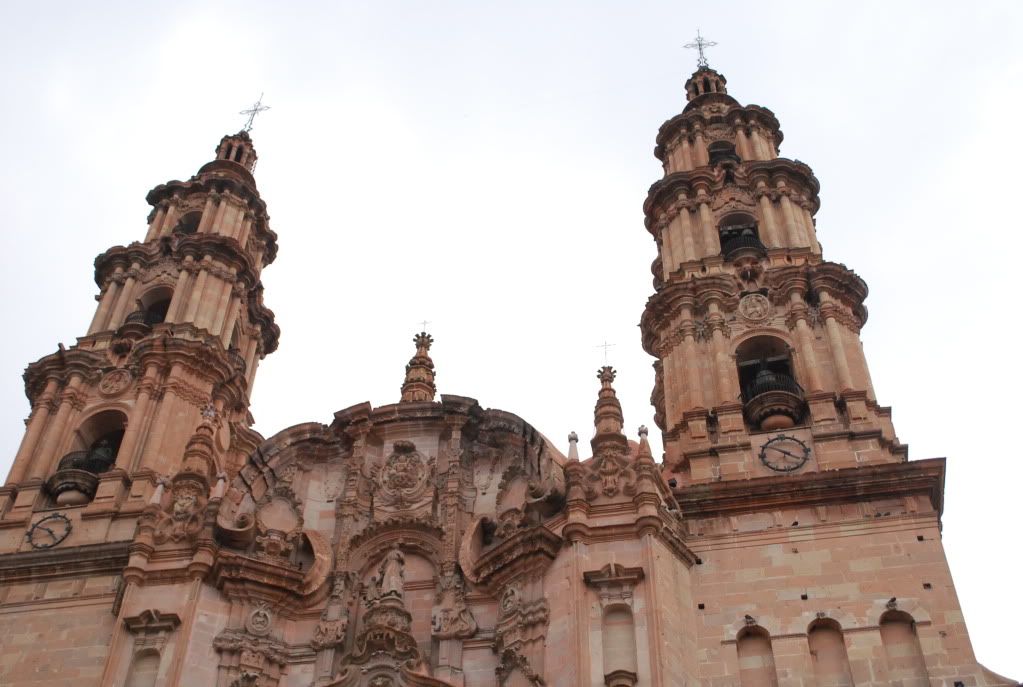 Each year, UCSD students have the unique opportunity to conduct transnational research in the United States and Mexico through the Mexico Migration Field Research Program. This year, the team traveled to the rich and vibrant state of Jalisco to study the public health effects of international migration in the quiet town of Tlacuitapa.
Each year, UCSD students have the unique opportunity to conduct transnational research in the United States and Mexico through the Mexico Migration Field Research Program. This year, the team traveled to the rich and vibrant state of Jalisco to study the public health effects of international migration in the quiet town of Tlacuitapa.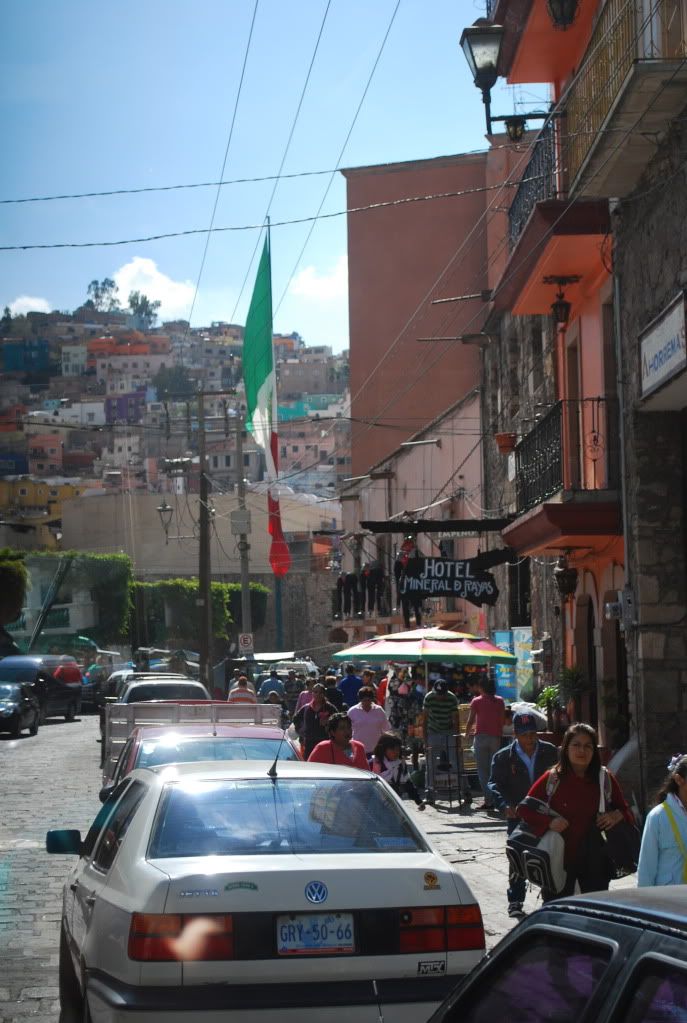 For over four generations, Tlacuitapenses have immigrated to the United States. Tlacuitapa, like many rural locales in Mexico, has been significantly impacted by important national events in the last century. The violence of the Mexican Revolution in 1910 and the ensuing Cristero Revolt disrupted economic and social life in Tlacuitapa, fostering large waves of emigration. Later, weak agrarian reform promoted by President Lázaro Cárdenas created a large population of impoverished peasants that depended on subsidies and favors from the Institutional Revolutionary Party (PRI), the political party that ruled Mexico from 1929-2000 and has since regained power.
For over four generations, Tlacuitapenses have immigrated to the United States. Tlacuitapa, like many rural locales in Mexico, has been significantly impacted by important national events in the last century. The violence of the Mexican Revolution in 1910 and the ensuing Cristero Revolt disrupted economic and social life in Tlacuitapa, fostering large waves of emigration. Later, weak agrarian reform promoted by President Lázaro Cárdenas created a large population of impoverished peasants that depended on subsidies and favors from the Institutional Revolutionary Party (PRI), the political party that ruled Mexico from 1929-2000 and has since regained power.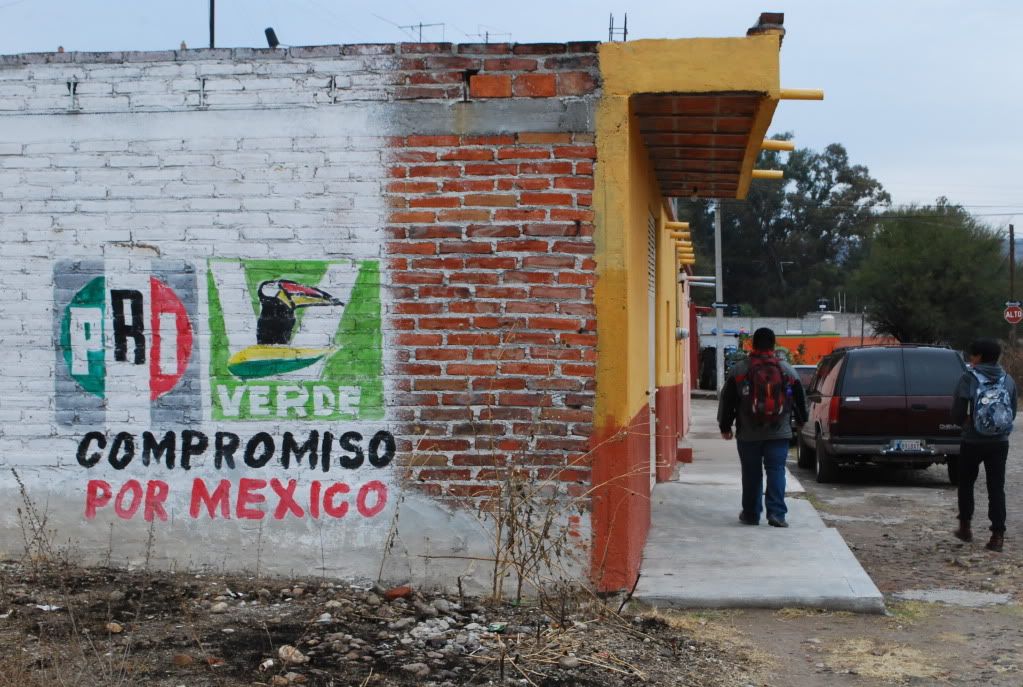 Additionally, between 1942 and 1964, the U.S.-Mexico Bracero program allowed millions of temporary agricultural workers to come to the United States and find jobs. Hundreds of Tlacuitapenses immigrated to the United States in search of work and were able to obtain legal residency through Immigration Reform and Control Act’s 1986 “general amnesty”. Since then, Tlacuitapa has continued to remain a transnational community in which the people are shaped by continual movement across the border.
Additionally, between 1942 and 1964, the U.S.-Mexico Bracero program allowed millions of temporary agricultural workers to come to the United States and find jobs. Hundreds of Tlacuitapenses immigrated to the United States in search of work and were able to obtain legal residency through Immigration Reform and Control Act’s 1986 “general amnesty”. Since then, Tlacuitapa has continued to remain a transnational community in which the people are shaped by continual movement across the border. Nestled in the desert mountains of Los Altos, one Tlacuitapense described the town as “como la tierra.” “We are like a cactus,” he mused, “part of land; full of thorns, but harmless if respected and left alone.” Despite this warning, the people of Tlacuitapa were friendly and as diverse as the many-colored houses that line the narrow streets of the city. Their wrinkled faces hide younger bodies and tired eyes show the physical strain of generations of struggle. These people have seen hard times and lived hard lives, but they still manage to laugh and welcome us into their homes with a smile.
Nestled in the desert mountains of Los Altos, one Tlacuitapense described the town as “como la tierra.” “We are like a cactus,” he mused, “part of land; full of thorns, but harmless if respected and left alone.” Despite this warning, the people of Tlacuitapa were friendly and as diverse as the many-colored houses that line the narrow streets of the city. Their wrinkled faces hide younger bodies and tired eyes show the physical strain of generations of struggle. These people have seen hard times and lived hard lives, but they still manage to laugh and welcome us into their homes with a smile.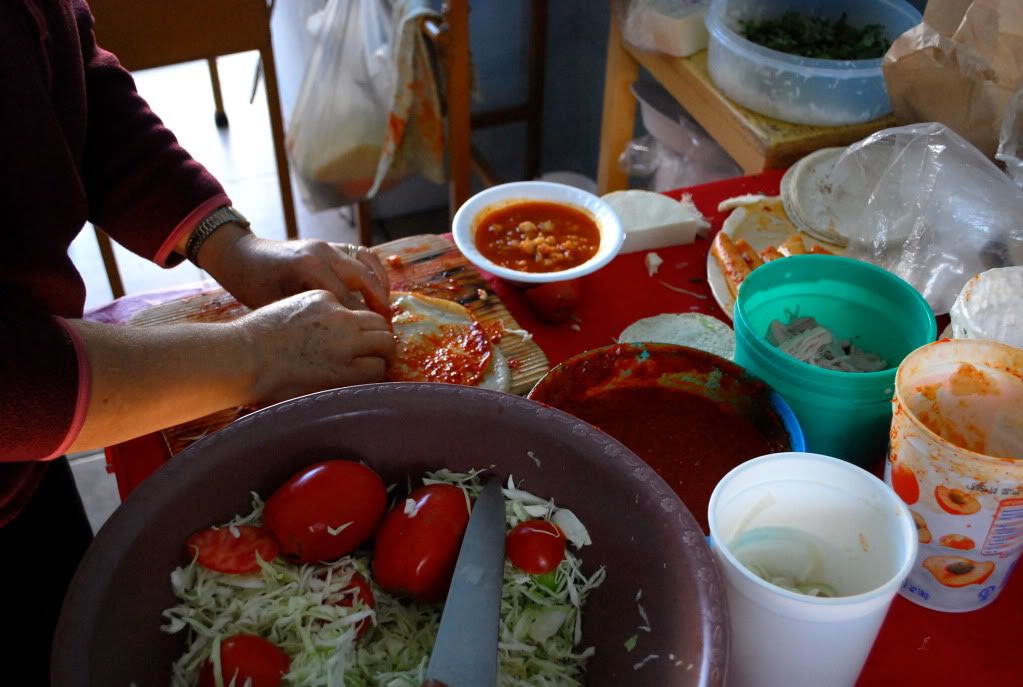 The culture is vibrant and diverse, laced with influences from both the United States and Mexico. Mornings of champurrado and chilaquiles, followed by lunches of homemade pozole (pictured above) are routine, yet American pop songs play from the cars passing by on the narrow, cobbled street. The Tlacuitapenses preserve their heritage with pride, even as their community of Norteños is shaped by constant change and compromise.
The culture is vibrant and diverse, laced with influences from both the United States and Mexico. Mornings of champurrado and chilaquiles, followed by lunches of homemade pozole (pictured above) are routine, yet American pop songs play from the cars passing by on the narrow, cobbled street. The Tlacuitapenses preserve their heritage with pride, even as their community of Norteños is shaped by constant change and compromise.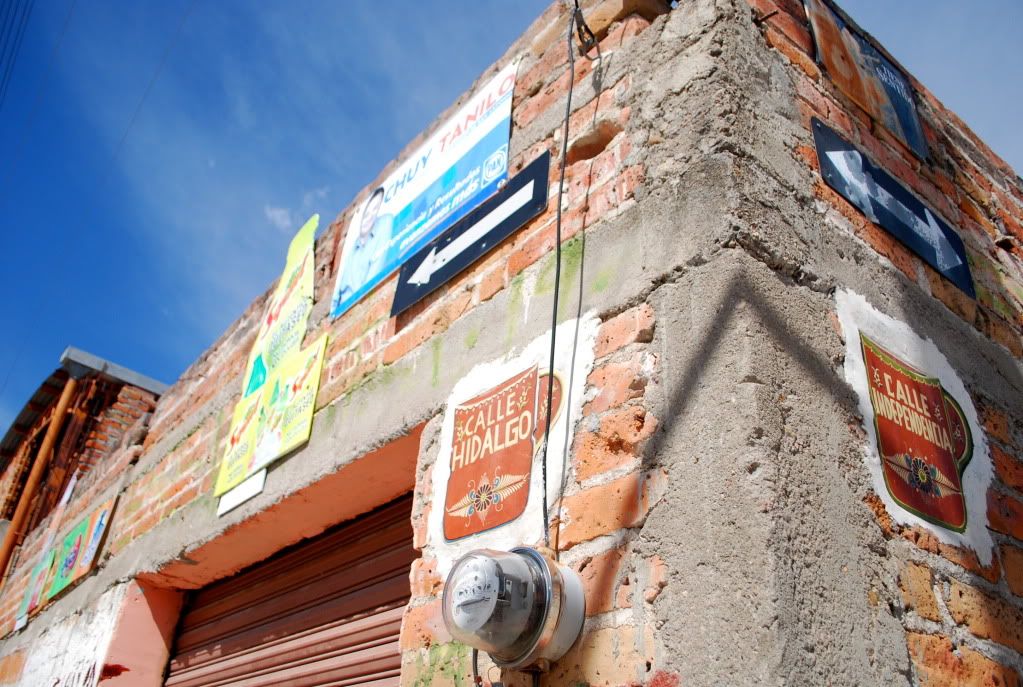 Each year, Tlacuitapa comes to life for nine days of festivities honoring the town’s patron saint, the Virgin of Guadalupe. In the days leading up to the fiestas, hundreds of migrants and their families return from their homes in the U.S. to join their fellow townspeople in the celebration.
Each year, Tlacuitapa comes to life for nine days of festivities honoring the town’s patron saint, the Virgin of Guadalupe. In the days leading up to the fiestas, hundreds of migrants and their families return from their homes in the U.S. to join their fellow townspeople in the celebration.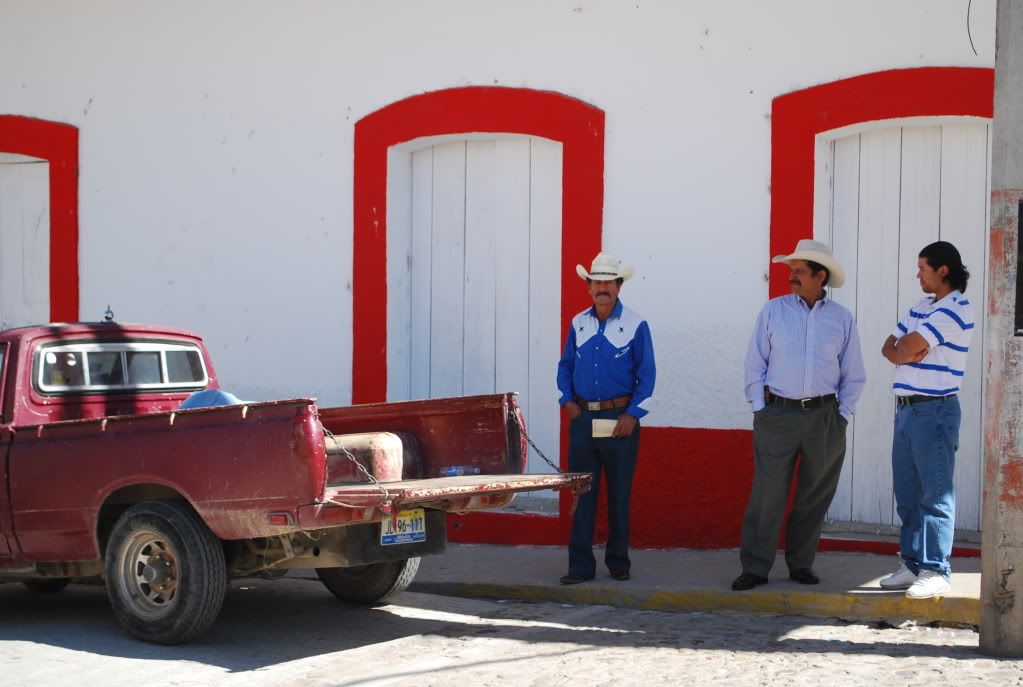 The streets are lined with trucks and cars bearing license plates from Jalisco, Oklahoma, Aguascalientes, and California as Tlacuitapenses reunite to spend time with friends and family. By day the town resonates with church bells calling all to mass, while cumbia music and dazzling carnival lights fill the night air.
The streets are lined with trucks and cars bearing license plates from Jalisco, Oklahoma, Aguascalientes, and California as Tlacuitapenses reunite to spend time with friends and family. By day the town resonates with church bells calling all to mass, while cumbia music and dazzling carnival lights fill the night air.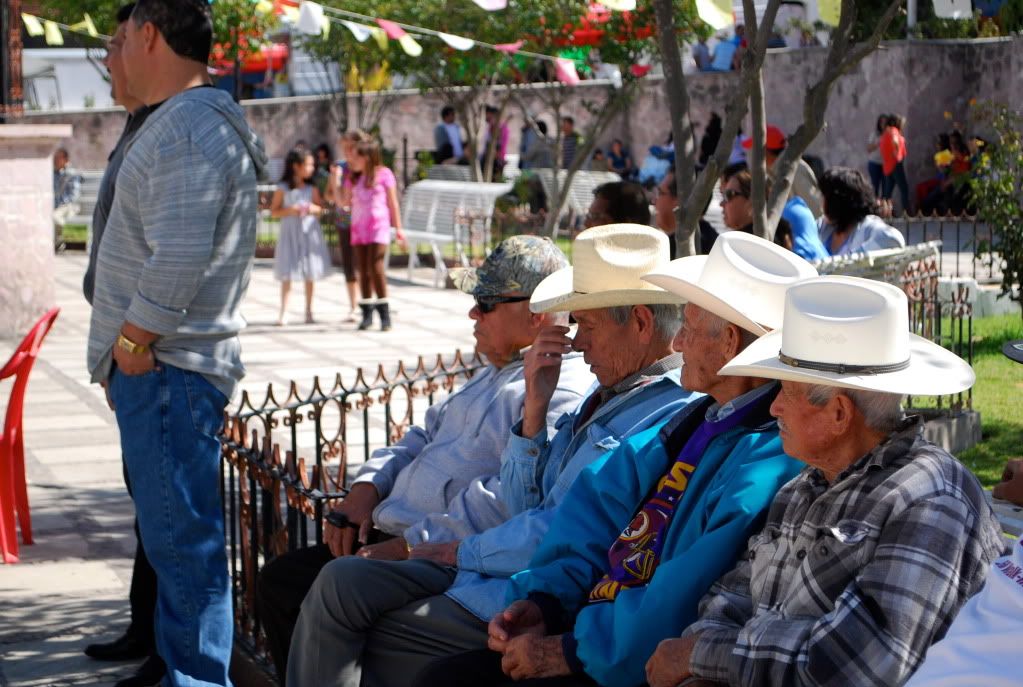
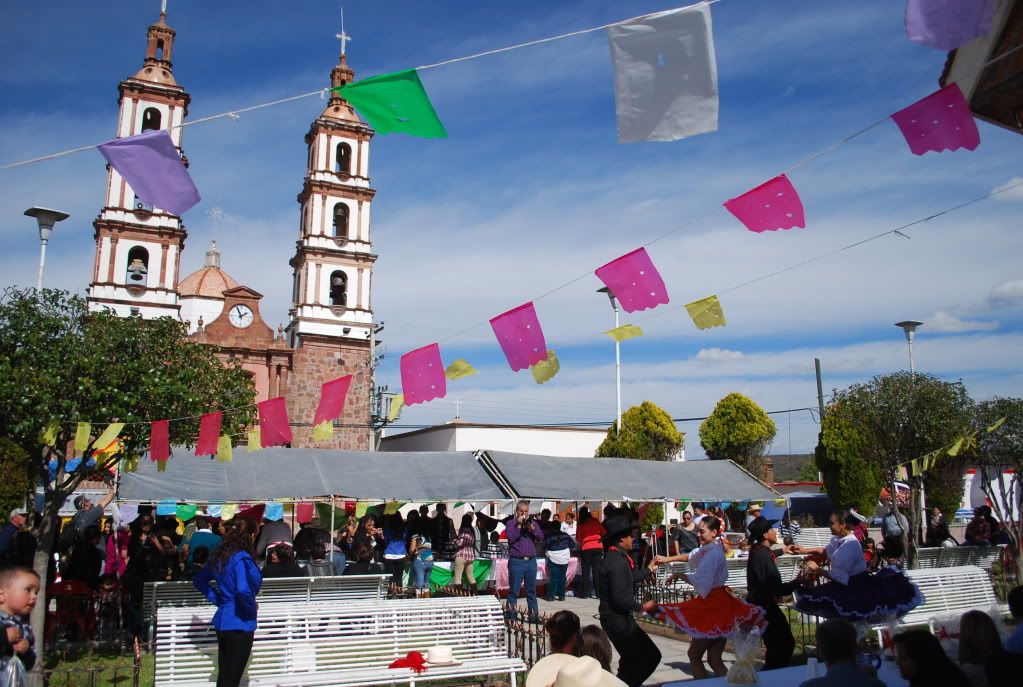 This year was Tlacuitapa’s first annual molé festival, and an entire day was devoted to praising the town’s famous chile-chocolate sauce. Modern molé is a mixture of ingredients from three continents, North America, Europe and Africa, making it the first international dish created in the Americas. However, it is based in Mexico and multiple Mexican states claim to be the birthplace of the legendary sauce. The residents of Tlacuitapa take particular pride in their molé and claim it is the best in the region.
This year was Tlacuitapa’s first annual molé festival, and an entire day was devoted to praising the town’s famous chile-chocolate sauce. Modern molé is a mixture of ingredients from three continents, North America, Europe and Africa, making it the first international dish created in the Americas. However, it is based in Mexico and multiple Mexican states claim to be the birthplace of the legendary sauce. The residents of Tlacuitapa take particular pride in their molé and claim it is the best in the region.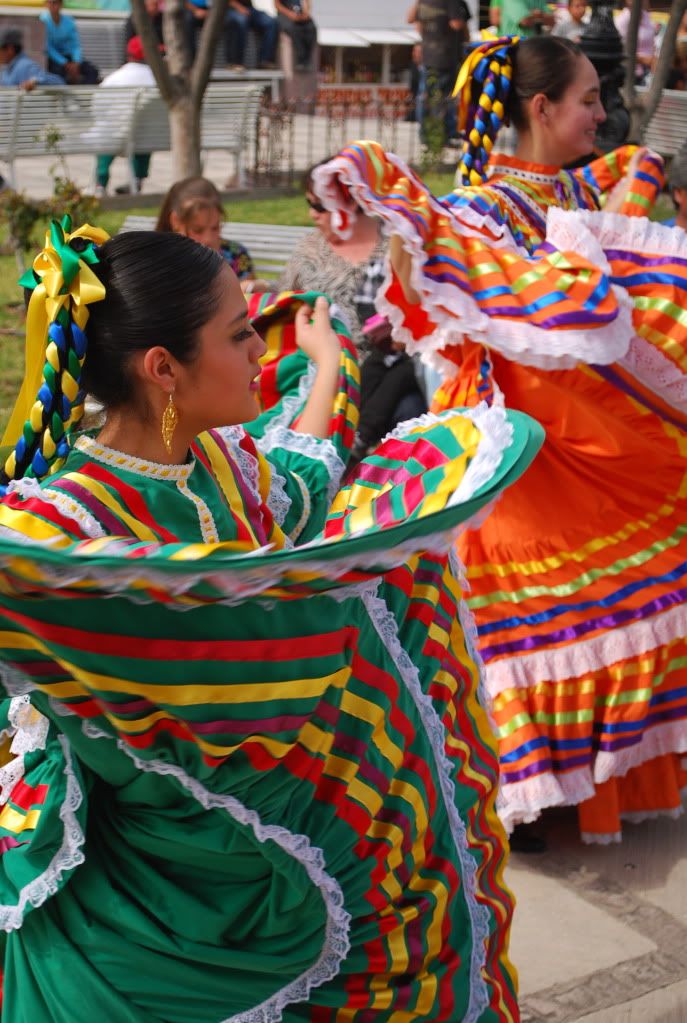 The quiet town explodes with color, music and smells as its people gather to commemorate its rich history. In a town of international migrants, the fiestas are reserved for cherishing Mexican heritage and national pride, and it was an honor to take part in these celebrations. A tumultuous history and international economic pressures have forced many families apart in order to survive, but for two short weeks in January, Tlacuitapa chooses to celebrate their reunification.
The quiet town explodes with color, music and smells as its people gather to commemorate its rich history. In a town of international migrants, the fiestas are reserved for cherishing Mexican heritage and national pride, and it was an honor to take part in these celebrations. A tumultuous history and international economic pressures have forced many families apart in order to survive, but for two short weeks in January, Tlacuitapa chooses to celebrate their reunification.
